'Tomato sauce guy': When Aussie barbecues get political
- Published
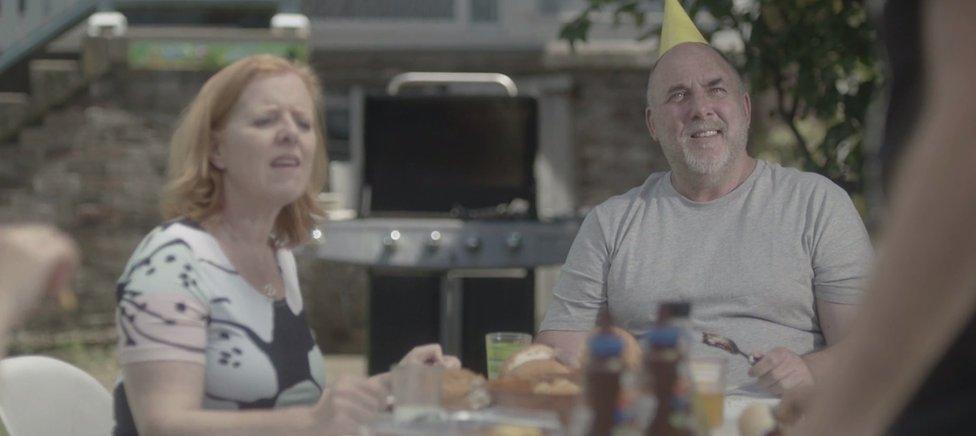
The ad says a 'simple difference' like taste in sauce 'shouldn't be a big deal'
In a quintessential suburban backyard scene, somewhere in Australia, a nervous man stands up to make a barbecue-stopping announcement.
As the others pass around barbecue sauce, he declares: "Mum, Dad, I like tomato sauce. I'm a tomato sauce man. Always have been."
His father, momentarily overwhelmed, gives him an emotional hug. The son shares a kiss with his husband - both are wearing wedding rings.
"A simple difference shouldn't be a big deal," ends the ad, part of a campaign to legalise same-sex marriage in Australia.
Ahead of Sydney's annual Gay and Lesbian Mardi Gras on Saturday, the ad's makers used a quintessential Australian scene to convey their message, and they're not the first to do so.
Appealing to the mainstream
Last year, Malcolm Turnbull became the first sitting Australian prime minister to attend the Mardi Gras.
But while he personally supports the legalisation of same-sex marriage, the issue has divided his conservative government, and a proposal for a vote on the issue was blocked in parliament last year.
This set the issue back indefinitely, to the frustration of rights activists. Mr Turnbull has said he won't be going to Mardi Gras this year, as he has "other things" on.
Armand de Saint-Salvy, who directed the tomato sauce ad, said it was a way of reigniting the marriage equality debate.
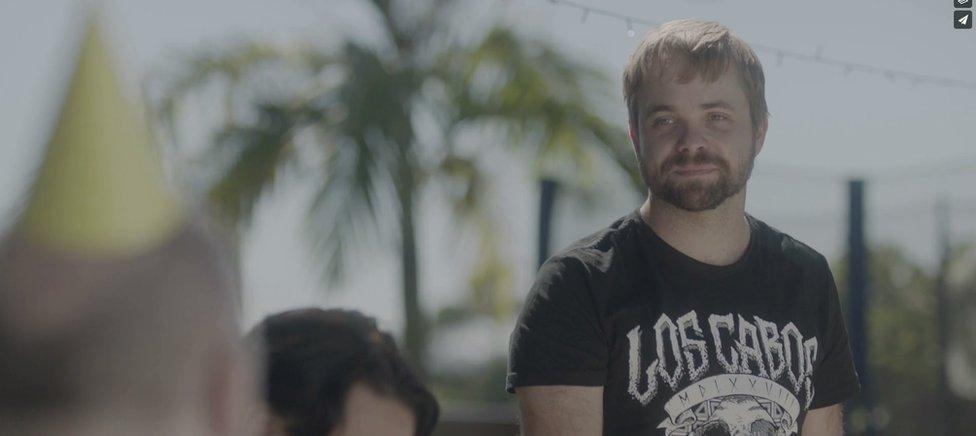
The campaign was designed to appeal to mainstream Australia
"I wanted to show a typical Aussie family where there was a same-sex married couple and it wasn't a big deal, it was part of everyday life, which hopefully will be the case in a few years," he told the BBC.
"I think everyone can relate to family coming together. That's really what the message is: equal love."
Dee Madigan, an advertising expert, said the scene bears similarities to adverts for beer, and works by taking the issue into the backyard.
"It's a really 'blokey' ad and I think that's the power of it," she told the BBC. "It's not high camp."
While the setting may seem an unlikely choice, she said it would appeal to mainstream audiences.
"The ordinariness of it plays into this sense - that I think everyone has now - which is, 'oh God, let's just stop making such a big deal and just get on with it'," Ms Madigan said.
Barbecue as concept
In a similar way to watching sport, putting on a "barbie" is often a social leveller in Australia.
"Sausage sizzles" have become a staple of election days in a nation where voting is compulsory. Competitions testing skill, external at the grill have been held. The Queen even concluded an 11-day tour of Australia by attending a huge barbecue.
Australian author Mark Thomson, who wrote a book on barbecues, said the backyard ritual holds a unique place in national culture.
"A barbecue is a profoundly egalitarian social setting," he said.
"Australians have remarkably few social rituals that bond us in ways that we all recognise. You go to something like an Australian citizenship ceremony and it's never quite as good as a barbecue with friends."
So it is no surprise that barbecue-themed adverts have increasingly explored issues such as multiculturalism and responsible drinking.
Examinations of social issues have also featured in ads for products, occasionally bringing controversy.
Meat and a message
A perennial campaign to convince people to eat lamb on Australia Day is perhaps the best-known example.
The ads for Meat & Livestock Australia (MLA) typically involved scenes of jingoism, and recently faced criticism, prompting a rethink in 2017. This year's commercial, external changed tack to celebrate multiculturalism and confront controversy surrounding Australia Day.
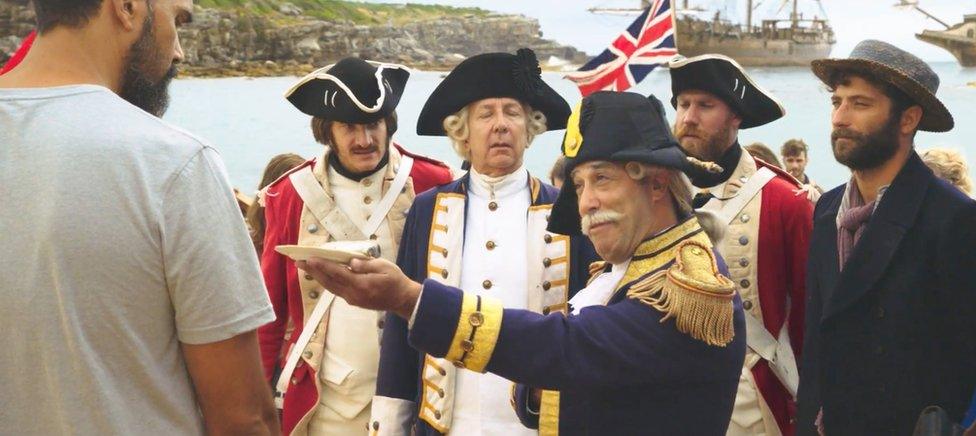
A divisive advert to promote eating lamb also tackles social issues
In the video, indigenous Australians discuss being the "first here" as boats arrive from the Netherlands, Britain, France, Germany, China, Italy, Greece, Serbia and New Zealand. The advert ends by asking "aren't we all boat people?", accompanied by an all-inclusive barbecue.
The advert received widespread attention, much of it positive, but still drew criticism for exploring a sensitive subject as "a marketing ploy", external.
MLA group marketing manager Andrew Howie said the lamb advert was designed to reach younger audiences.
"You have to be able to create something that has enough currency that it starts to flood their social media feed," he said.
Ms Madigan agreed social media marketing in particular relied on viral attention.
It was not surprising that marketers were turning to backyard scenes to explore complex concepts, Mr Thomson said.
"It's great that people are using those things to sneak in ideas about who we are," he said.
"The barbecue is not about to disappear anytime soon."
- Published25 January 2017
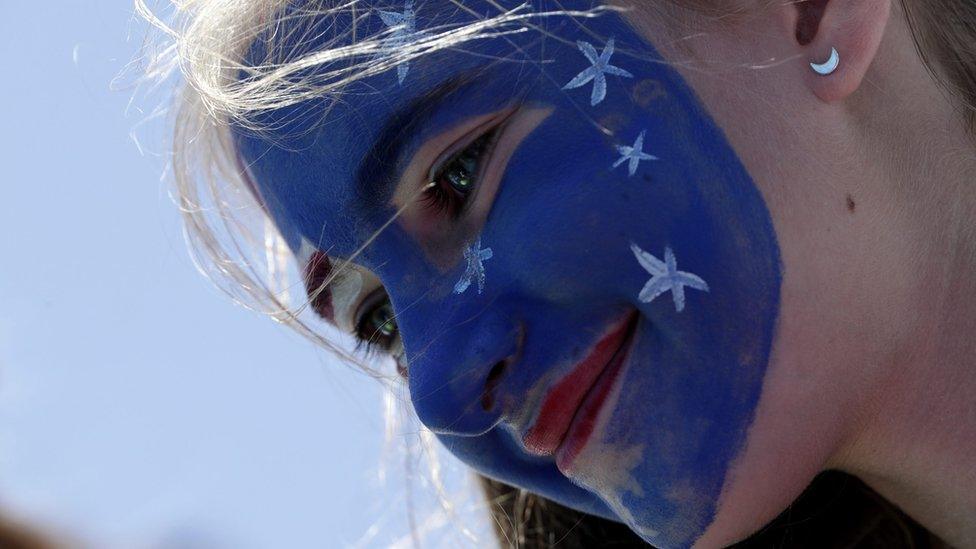
- Published10 November 2016

- Published2 July 2016
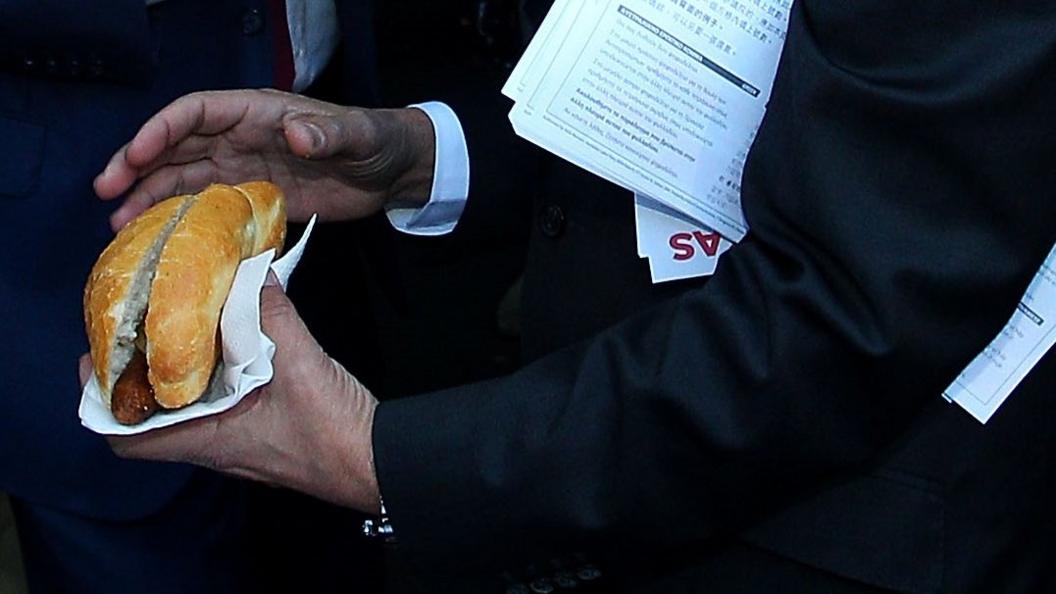
- Published12 January 2016
